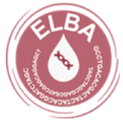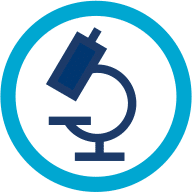EU-Funded Project

Abbreviation:
ELBA
Title:
European Liquid Biopsy Academy.
In short:
Training programme exploring the potential of liquid biopsies in cancer diagnostics – with a focus on non-small cell lung cancer.
Tags:
Human R&D, Training


Project Details
Funding scheme:
H2020-MSCA-ITN-2017 – Grant Agreement ID 765492
Time frame:
1 January 2018 to 31 December 2021
Weblink:
Home
Description:
Liquid biopsies have been heralded as a game changer in cancer management, with blood tests offering a minimally invasive, safe, and sensitive alternative or complimentary approach for tissue biopsies. Blood represents a rich source of information through which solid cancers (and their subtypes) can be detected, identified, classified, and matched to a specific therapy. However, despite the potential of individual approaches, the promise of liquid biopsies has not yet materialized in the clinic. To move the promising liquid biopsy technology out of its infancy, the research programme and educational curriculum of ELBA covers the entire value chain of diagnostics development and integrates all required disciplines and sectors. To that end, ELBA will educate 15 early stage researchers (ESRs) with the skills to circumvent the obstacles currently hampering effective development and commercialization of liquid biopsy approaches. By creating a sustainable network to foster long-term multidisciplinary relationships and communication networks with various stakeholders ELBA aims to accelerate clinical translation of these blood-based diagnostics, focusing on non-small cell lung cancer. As one of the partner organizations, GenomeScan is involved in hosting ESR secondments, contributes to training, performs Next Generation Sequencing (NGS) services and computational analyses aiming to aid biomarker discovery and biomarker-based assay development for minimally invasive liquid biopsy tests.
Output:
T.b.a. (ongoing project)
Acknowledgements:


